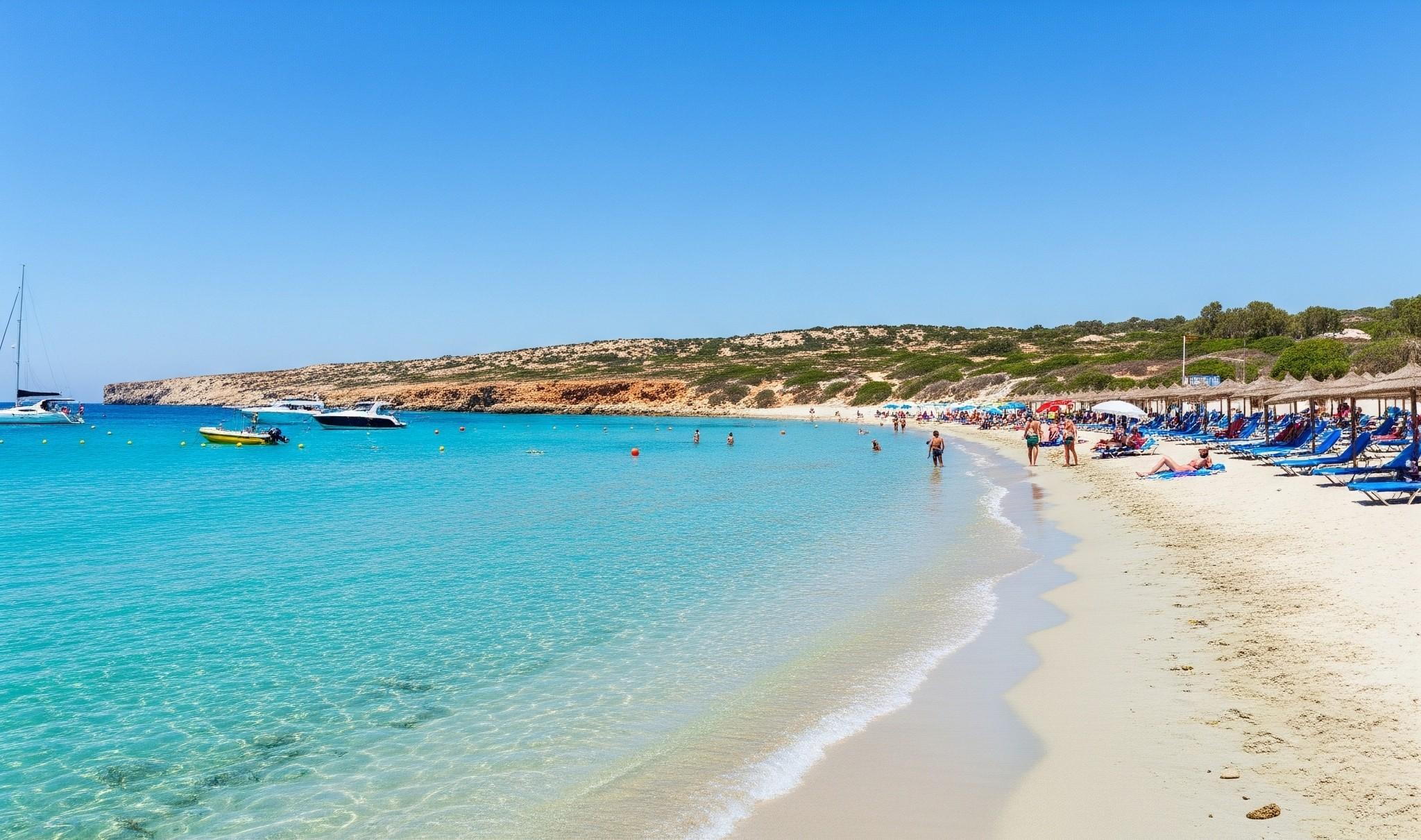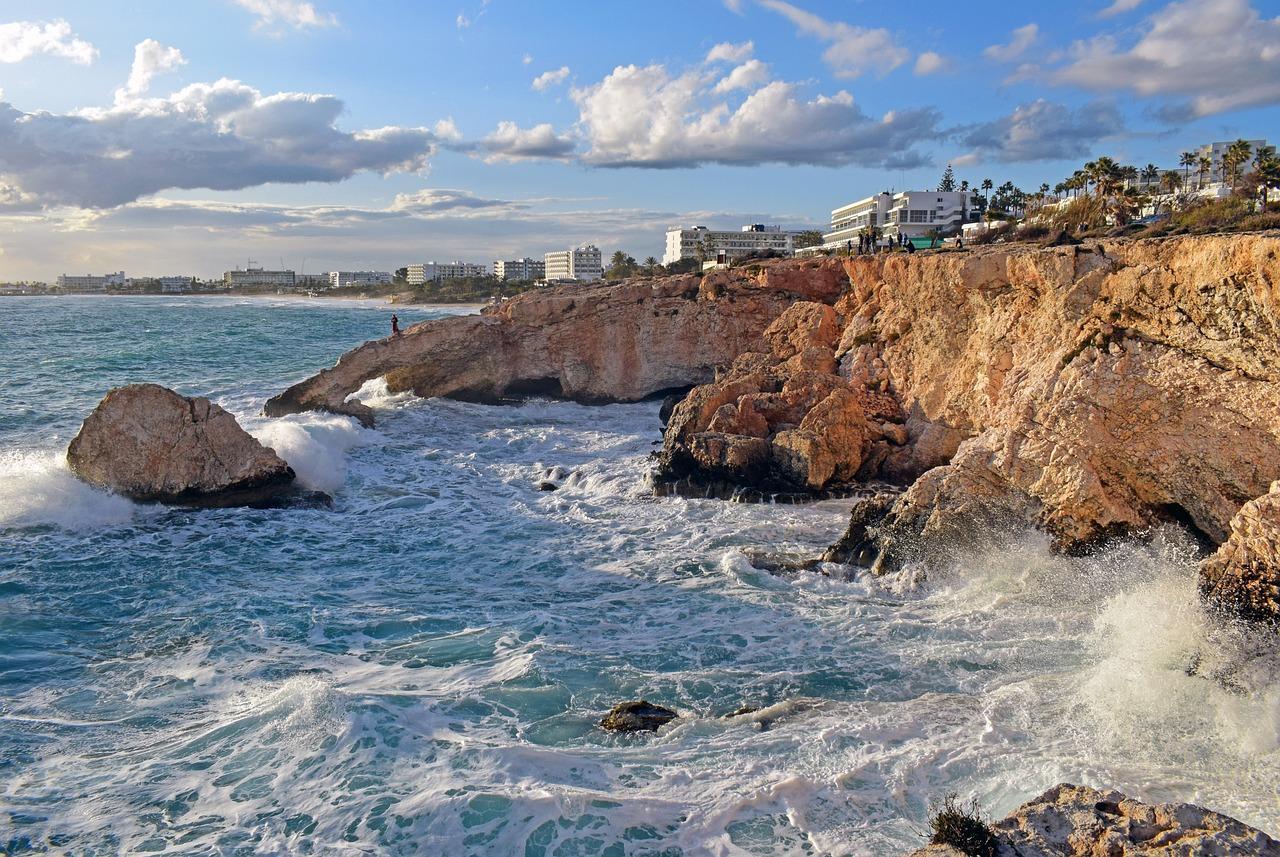Planning a trip to a piece of paradise? Find out if there's a tourist tax in 2025. How much it costs, and what it means for your travel budget. Get the latest...
Your holiday in Cyprus 2025: is there a fee for visitors?
This Eastern Mediterranean country consistently entices travellers with its golden, expansive beaches, azure waters, rich history, and the sincere hospitality of the Cypriot people. As many people from around the world begin to plan their holiday 2025, a crucial question arises, especially for the thrifty: the existence and size of a potential traveler's duty. Any additional fees can impact the overall cost of a trip, and understanding these nuances helps avoid unpleasant surprises. It just adds more to the bills, you know?
The main question on every tourist's mind is: does the tax in Cyprus 2025 even exist, and if so, how much could it be?So the situation regarding this duty is indeed under active discussion by the Cypriot government, and it's important for any visitor to understand what to expect. Relax, today Gran Canaria and the island of Aphrodite 2025 both don’t charge...
Historically, the country has favorably stood out from many other popular European destinations precisely because it lacked a direct tourist tax. This was one of the factors that made a holiday on the island highly accessible and appealing, particularly for families and financially savvy travellers. Many travellers commented that the absence of the liability really makes the country attractive. The introduction of any new fees would mark a departure from this long-standing policy, which has been a boon for the tourism sector.

Tourist tax 2025: a mixed picture and «Green» initiatives
The question of how much the collection is in Cyprus is becoming increasingly relevant for tourists. Let's delve into the details of what travellers should know.
Historical context and current confusion
Traditionally, the island nation has not levied a special tourist dues on travellers for their stay in hotels or rented accommodation. This distinguished and attracted travellers looking to optimize their holiday cost. However, the information for 2025 is contradictory. Specialised media point to active plans by the Cypriot government to introduce a new fee that could affect every traveler. It's vital to understand that the government is actively debating this issue, and the final decisions and timelines could be adjusted. This fluidity in decision-making creates a degree of uncertainty for both voyagers and the leisure industry.
«Green Taxes» and a possible «Overnight Stay Fee»
The potential new fee for tourists is part of a broader initiative by the Cypriot government to implement so-called «Green Taxes». These measures aim to encourage environmentally responsible behaviour and to finance projects in environmental protection and sustainable tourism development.
The introduction of these dues, including a possible fee for tourists, is closely linked to Cyprus's commitments under the European Union's Recovery and Resilience (R&R) funds. The government included it in the program as a condition for receiving EU funding, which explains its persistence in their implementation despite their potential unpopularity. Rejecting this duty could lead to a loss of funds intended for the Cypriot economy.
Details of the potential overnight stay fee:
- Cost of the fee. A frequently mentioned rate in sources is 2,50 euro per person, per night.
- Application. The fee is expected to apply to various types of accommodation, including hotels of all categories, apartments, and short-term rental properties like villas and flats let through online platforms.
- Implementation timeline. This is where the most uncertainty lies. Initially, a possible introduction from May 2025 was discussed. However, recent reports from early 2025 indicate a high probability of the fee's introduction being postponed to 2026. This is because this specific fee, unlike other «Green Taxes», is not a direct obligation of the divided island to the EU under the R&R plan. Travellers should monitor official announcements from the authorities.
- Purpose of the fee. The stated goals include financing environmental projects, promoting the sustainable development of the visitor economy, improving tourism infrastructure, and supporting the hotel industry. This investment helps ensure the island remains a popular destination for people from around the world.
Notably, various terms are used in official documents and discussions: «Tourist Tax», «Overnight Stay Fee», or it is considered within the general package of «Green Taxes». The government might choose a name that emphasizes the environmental focus, such as «Ecological Fee» or «Sustainable Tourism Fee». Such positioning could be perceived positively by people, as their generous contribution to preserving the unique nature and cultural heritage of the island.

How might the new fee affect the cost of a holiday?
When you plan your holiday, it's important to understand how a potential new fee could affect your budget.
Calculating potential additional expenses
If the overnight stay fee is introduced at a rate of 2,50 euro, the additional outlays will be as follows:
- For a 7-night: 7 * €2.50 = €17.50 per person.
- For a couple for 7 nights: 2 * €17.50 = €35.
- For a family of three for a 10-night: 3 * 10 * €2.50 = €75.
These amounts, while perhaps seeming minor at first glance, add up and can become a noticeable part of the allowance, especially for cost-aware travellers or during a long visit. Keeping these potential extra payments in mind is wise.
Where will the collected funds go?
As mentioned, the government states that the funds from the fee will be directed towards improving travel industry infrastructure, implementing ecological projects, preserving cultural heritage, and supporting the Cypriot hospitality sector overall. Transparency in the use of these funds will be crucial for maintaining loyalty and their willingness to pay this additional money. If travellers see real improvements — cleaner beaches, updated attractions, better public services — it could positively affect their perception of the charge. The value received will be key.
What about other countries?
It is important to note that if Cyprus introduces the fee, it will not be a unique phenomenon in Europe. Many popular destinations have long been charging similar fees. These charges typically go towards developing local infrastructure and compensating for the burden that industry inevitably places on local resources.
Potential tourist fee vs. other European destinations (2025)
Aspect/Country | Cyprus (Potential) | Greece | Spain (Barcelona) | Italy (Rome) |
Status | Discussed/Planned (Likely 2026) | Active | Active | Active |
Approx. Rate (€) | €2.50 | €1.50 - €10 | Up to ~€7 | €3 - €7 |
Notes | Single proposed rate | Varies by accommodation category and season (Climate Crisis Resilience Fee) | Regional + City tax, prices can vary | Varies by accommodation type, rates could increase |
This comparison shows that taxes and fees are a common practice. For Cyprus, introducing such a fee would mean joining a general trend. The success of the initiative will largely depend on the visible results from the use of the collected funds. Some categories of travellers, such as children under a certain age or people with disabilities, might be exempt from paying the contribution if it is introduced.

Information for property owners
For property owners, especially those who rent out their accommodation for short terms, certain regulatory and tax obligations exist.
Mandatory property registration for short-term rentals
Since 2020, a law in Cyprus requires all hotels and short-term rental accommodation (including those on platforms like Airbnb) to be registered in a special registry of the Deputy Ministry of Tourism. Owners must obtain a unique registration number for each property. Advertising and renting unregistered accommodation are prohibited and can lead to fines.
These requirements aim to formalize the short-term rental sector, ensure compliance with quality and safety standards, and ensure fairer taxation. It is crucial to distinguish between dues that property owners pay on their income (VAT, income tax) and the potential overnight stay fee. The latter, if introduced, would be charged to the tourist, with the accommodation provider likely acting as the collection agent for the government. Luxury resorts and high-end accommodation options are unlikely to be exempt, as the government aims to apply it uniformly across the sector.

Tips for travellers
Despite some uncertainty about the tourist fee, the island of Aphrodite remains a magnificent holiday destination. Here are a few tips to help you plan your trip to Cyprus in 2025-2026 intelligently.
Where to find up-to-date information
Since the situation with tourist fees in the hellenic republic can change, travellers are strongly advised to check the latest information on official websites before their trip. Such resources include:
Planning your travel means
When planning your budget for a holiday in 2025 or 2026, it would be prudent to set aside a small amount for the possible overnight stay fee. Based on the discussed rate of 2,50 euro per night per person, you can calculate the approximate additional expenses for your stay. It is important to remember that even with this potential charge, the island nation offers excellent value for money compared to many other European places.
Choosing legal accommodation
We remind you of the importance of choosing registered accommodation in Cyprus — be it a hotel or rental property. Registration ensures that the facility meets established safety and quality standards and that its operations are legal. Moreover, legal accommodation providers tend to correctly inform people about any applicable fees and collect them in accordance with the authorities' requirements. This ensures transparency and protects the rights of travellers.

Cyprus remains attractive – get ready for bright impressions!
The issue of the fee in Cyprus for 2025-2026 remains a focus of attention. As of the writing of this article (June 2025), a specific tax, similar to those in many other countries, is not levied in Cyprus. However, the Cypriot government is actively discussing the introduction of a «Green Fee» for overnight stops at around 2,50 euro per person, per night. It is most likely that if this fee is introduced, it will not be before 2026, but travellers planning a trip to the republic should carefully monitor official announcements.
The country aims to develop its tourism sector sustainably, caring for the environment and improving the quality of rest for its guests. Any new fees will be directed towards these goals: improving infrastructure, implementing environmental programs, and providing even higher quality services. This is an investment in the future of τhe land of cedars and sunshine!
Despite potential additional expenses, Cyprus was and remains a wonderful place for a holiday, offering an incredible variety of experiences — from a serene beach holiday to exploring ancient ruins and enjoying a vibrant nightlife. Being informed about potential fees and careful planning will help you avoid misunderstandings and fully enjoy everything the hospitable island of Aphrodite has to offer!
Save my name, email, and website in this browser for the next time I will add information.



